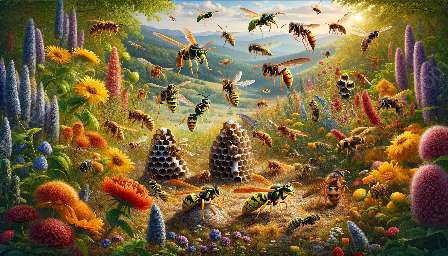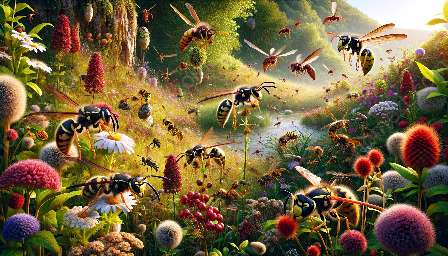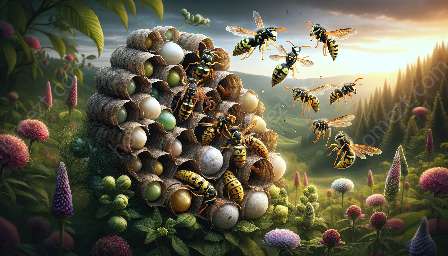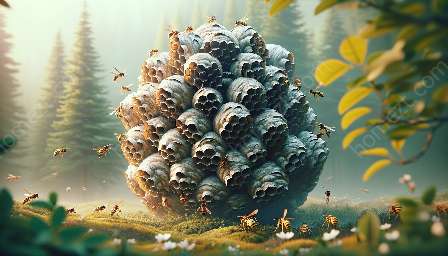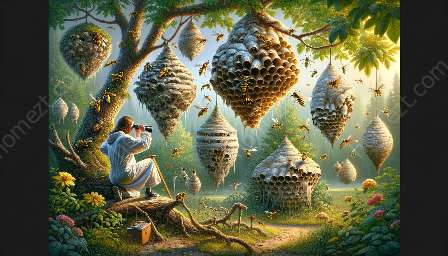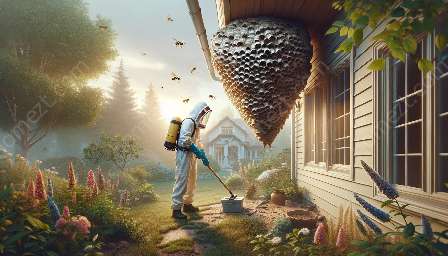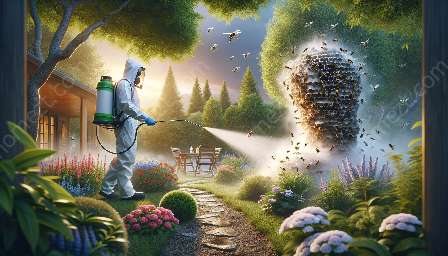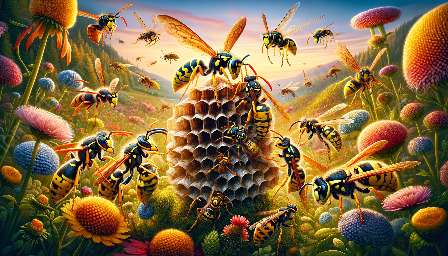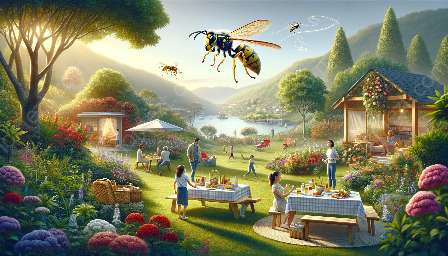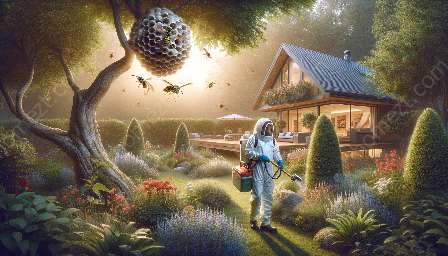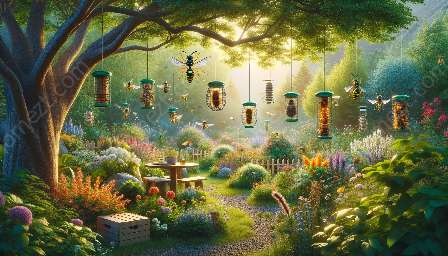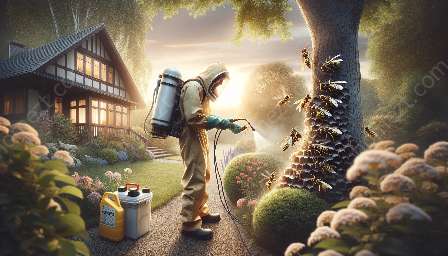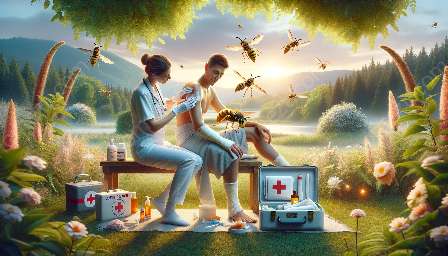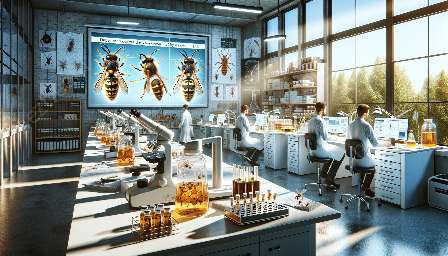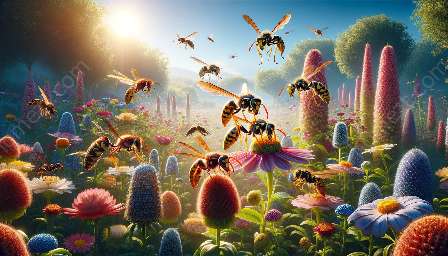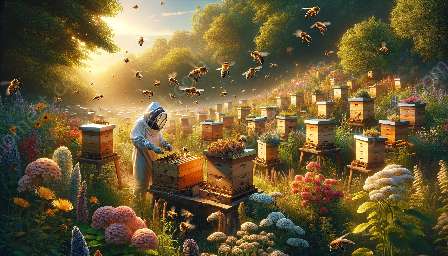Wasps are often associated with their reputation as pests, but they play crucial roles in both pollination and pest control, contributing to the delicate balance of the ecosystem.
Understanding the multifaceted relationship between wasps, pollination, and pest control is essential for appreciating the complexity of nature and the interconnections that sustain life on Earth.
Wasps and Pollination
When it comes to pollination, bees typically garner most of the attention, yet wasps also serve as valuable pollinators. While foraging for nectar, wasps inadvertently transfer pollen from one flower to another, facilitating the reproductive process for numerous plant species.
Unlike bees, which primarily feed on pollen, wasps primarily consume nectar. As they visit flowers in search of this sugary substance, they carry out the essential task of pollination, aiding in the reproduction of flowering plants and the production of fruits and seeds.
Additionally, some wasp species have evolved unique relationships with specific plants, becoming specialized pollinators for those species. This specialized pollination further underscores the significance of wasps in maintaining the biodiversity of plant populations.
Wasps and Pest Control
Another often overlooked aspect of wasps' ecological contribution is their role in pest control. Many wasp species are natural predators of various insect pests, including caterpillars, aphids, and flies.
Parasitoid wasps, in particular, have a remarkable ability to regulate pest populations. These wasps lay their eggs inside the bodies of other insects, such as aphids or caterpillars. When the wasp larvae hatch, they consume the host from the inside, effectively controlling pest populations and providing a natural form of pest management.
The biological control exerted by wasps helps maintain the balance of insect populations in natural ecosystems and agricultural settings, reducing the reliance on chemical pesticides and fostering sustainable and resilient agricultural practices.
The Interconnectedness of Wasps, Pollination, and Pest Control
The interconnectedness of the roles played by wasps in pollination and pest control is a testament to the intricate web of ecological relationships. As pollinators, they contribute to the reproductive success of plants and the biodiversity of ecosystems. Simultaneously, as natural enemies of pests, they contribute to the regulation of insect populations and the sustainability of agricultural systems.
Humans, in turn, benefit from the crucial ecological services provided by wasps. By recognizing and respecting the roles of these often-misunderstood insects, we can cultivate an appreciation for the complexity and resilience of natural ecosystems.
Appreciating Wasps and their Contributions
It is clear that wasps are not solely pests, but rather essential components of healthy ecosystems. Their contributions to pollination and pest control underscore their value in preserving the delicate balance of nature.
By promoting awareness and conservation efforts focused on sustaining healthy populations of wasps, we can support the vital ecological functions they perform, ultimately benefiting the intricate tapestry of life on our planet.

